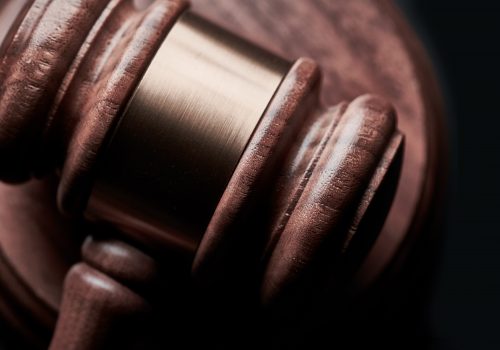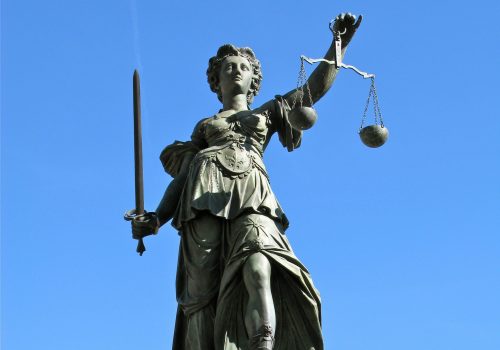International avenues to hold the Islamic Republic of Iran accountable for human rights violations
The tragic death of twenty-two-year-old Mahsa Jina Amini—a Kurdish-Iranian woman arrested by the Islamic Republic of Iran’s (IRI) infamous morality police in September 2022 for allegedly defying the state’s mandatory hijab laws—has brought the brutality of the IRI’s discriminatory legal framework against women, girls, and other marginalized populations into clear focus for the global community. Amini’s death sparked waves of massive protests throughout Iran, animated by the slogan “woman, life, freedom,” serving as a rallying cry for Iranians inside Iran and in the diaspora. It is a cry of resistance against the state and of a desire to hold IRI officials accountable for atrocity crimes and human rights violations.
The IRI response to dissent has been a brutal crackdown on peaceful protesters, including internet shutdowns, excessive use of force, arbitrary arrests and detentions, sexual and gender-based violence, torture, enforced disappearances, summary trials, and even executions. These abuses of the state have left Iranians looking for internationalized responses to their plight, as domestic avenues for accountability in the Islamic Republic’s courts are not reliable for victims. Countries around the world have responded in a range of ways, including via diplomatic channels and through the issuance of targeted sanctions against individuals and entities for gross human rights violations in Iran. However, many options for justice remain underused or unexplored.
International forums and mechanisms can be used to pursue accountability for these violations. To put these mechanisms and avenues into context and to shed light on how they may apply to Iran, as well as to illustrate any limitations, the Atlantic Council Strategic Litigation Project has authored this report, which aims to provide an overview of and recommendations relating to international options that can be used to pursue accountability for human rights violations committed in Iran.
The different avenues covered in this report were selected by considering the treaties that have been ratified by Iran, international courts that do or could have jurisdiction over the IRI or relating to violations that take place in Iran, different mechanisms available in which the IRI participates under the United Nations (UN) and other international organizations, and mechanisms designed specifically to address issues in Iran. Lastly, this report ends by looking to the future and highlighting current developments in international law that, if successful, could provide new avenues for accountability.
Related content
Image: The statue of Lady Justice on top of a fountain is silhouetted against the sun during a sunny afternoon in Frankfurt, Germany, September 14, 2020. Source: REUTERS/Kai Pfaffenbach


